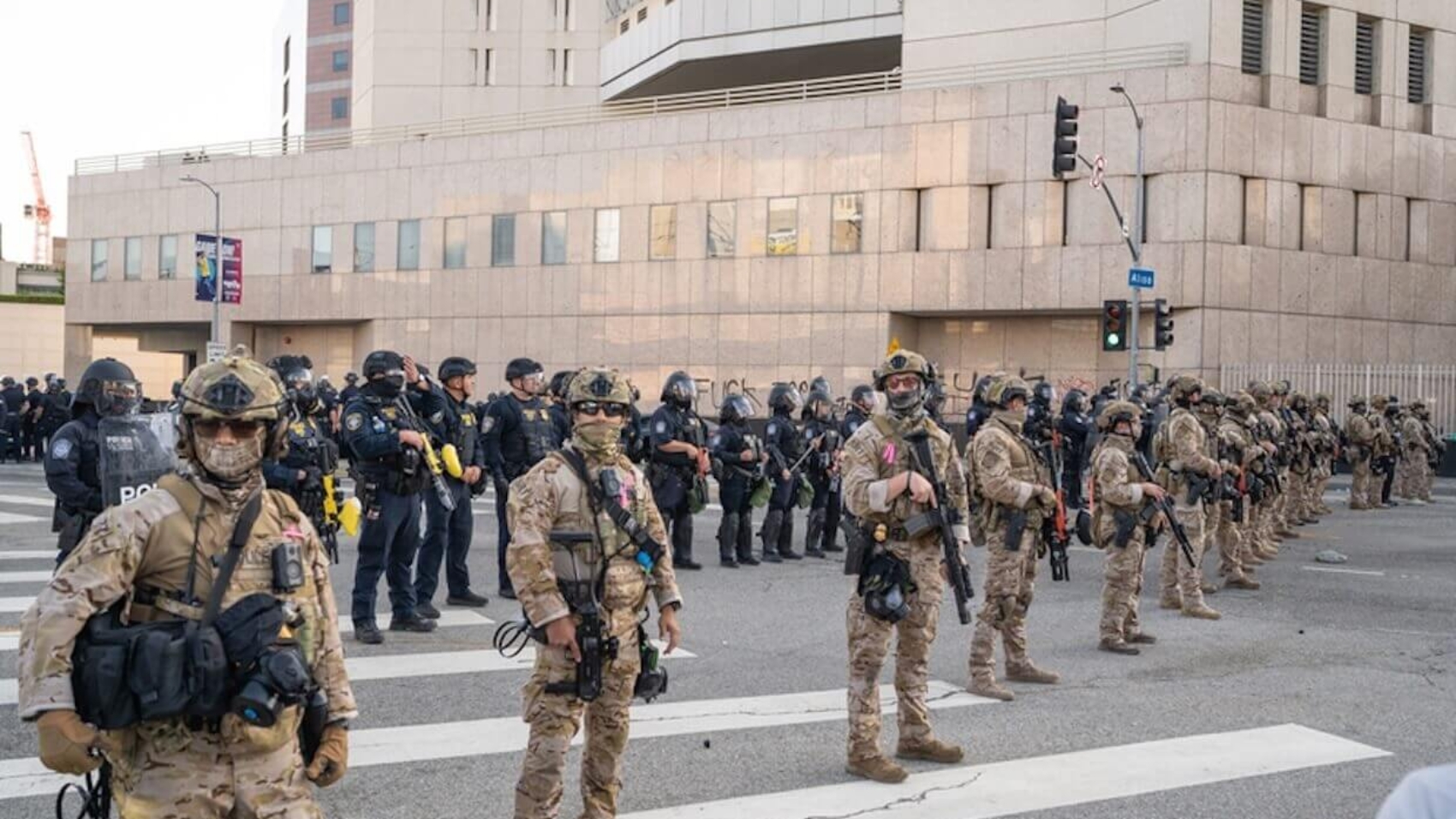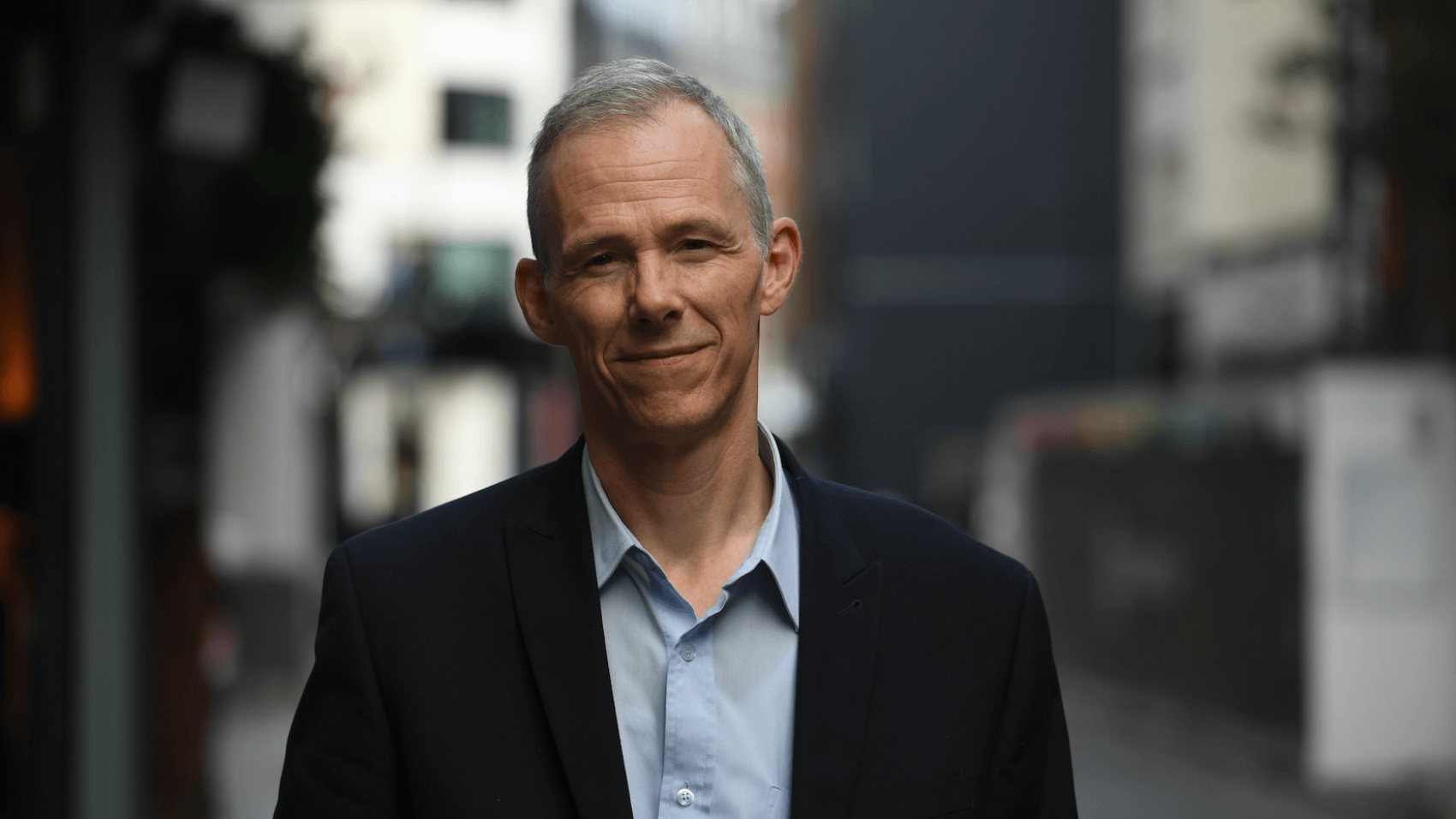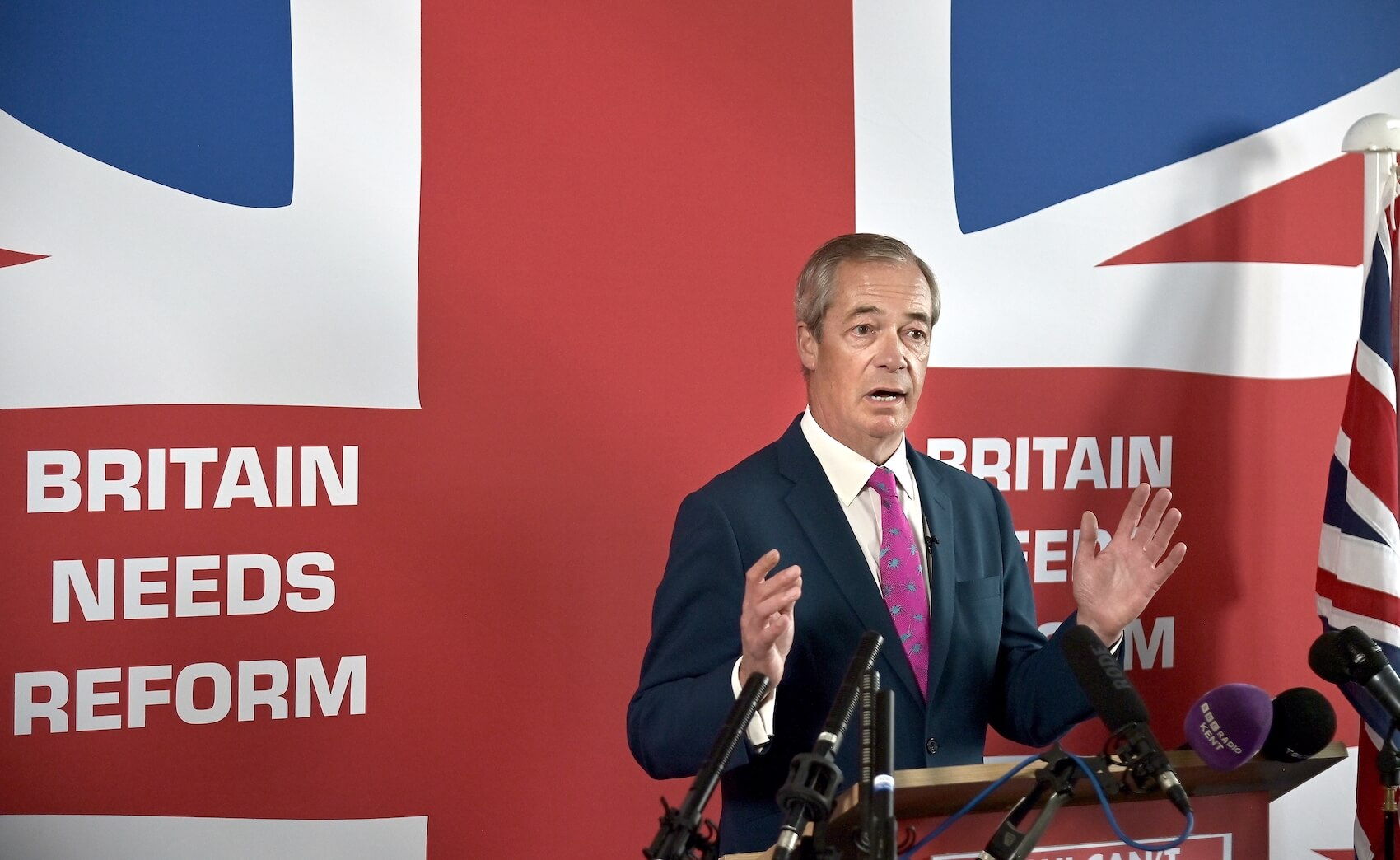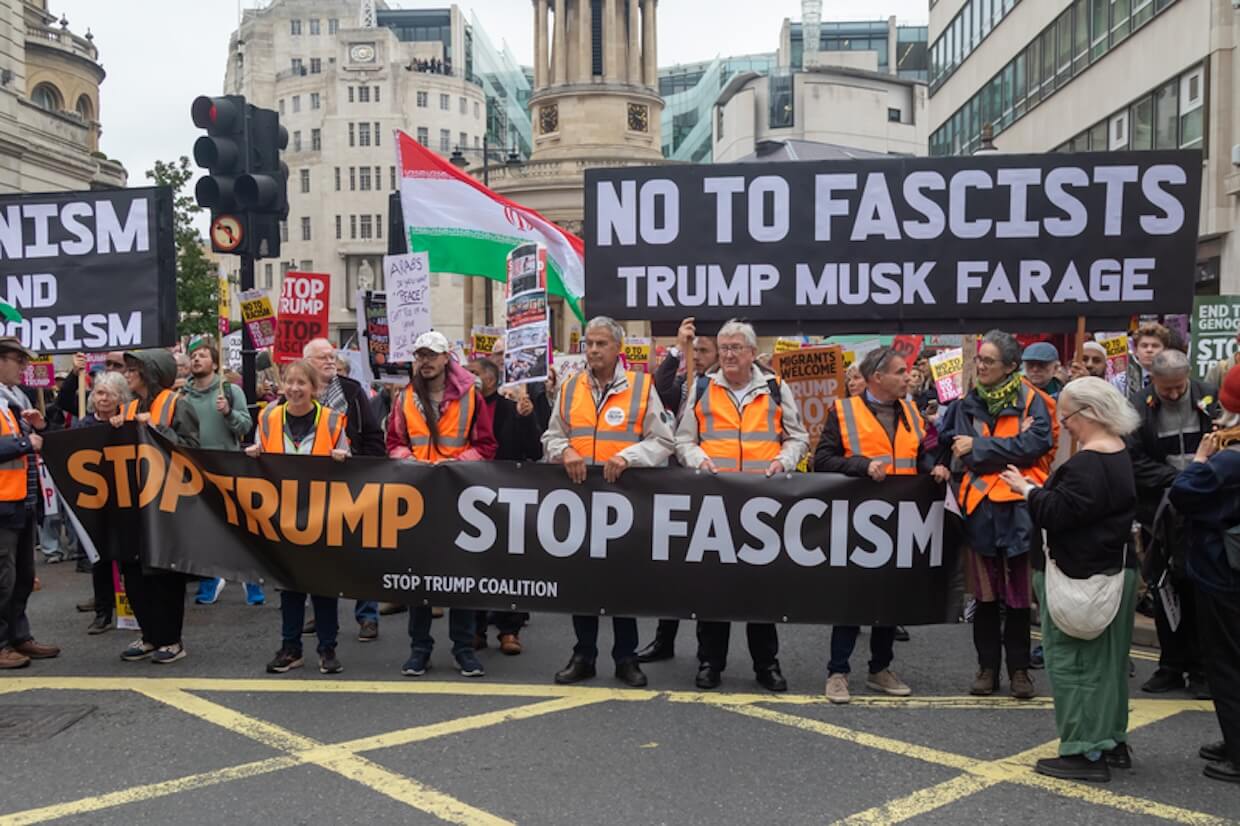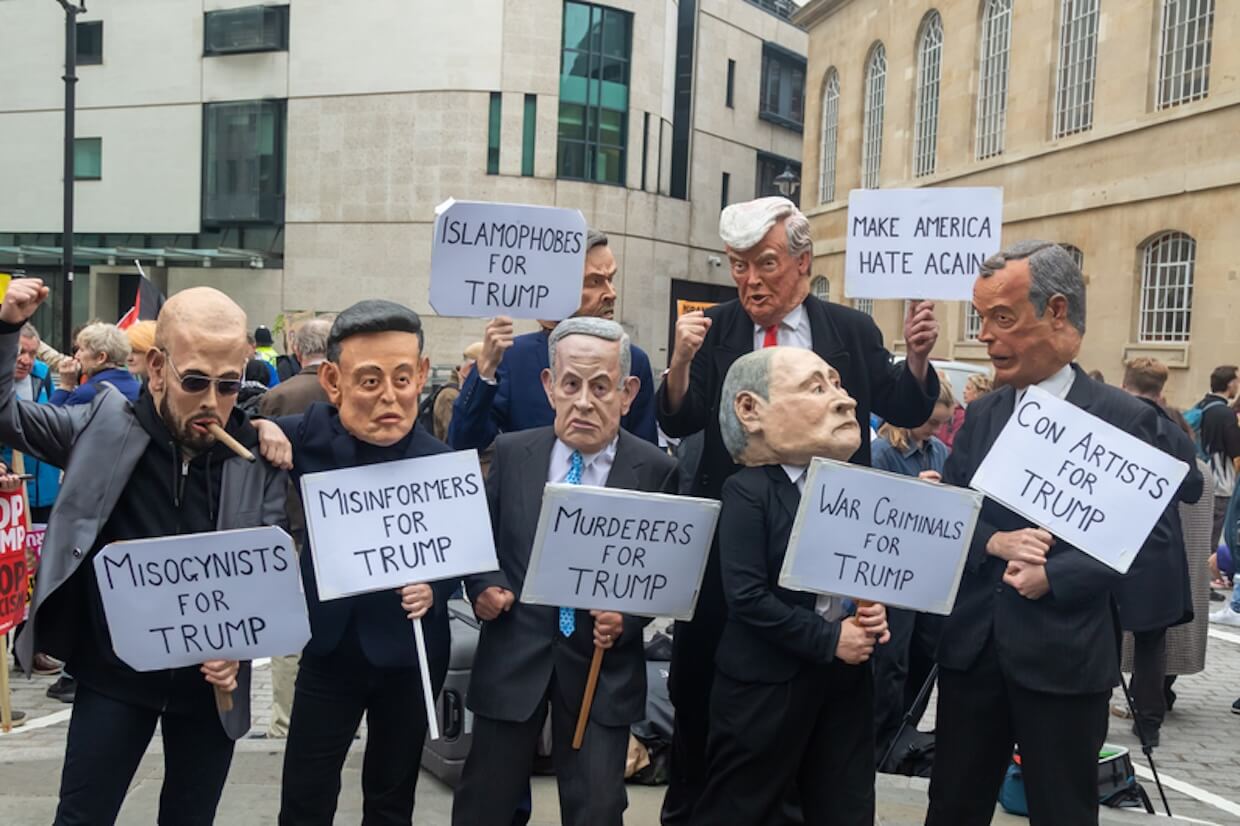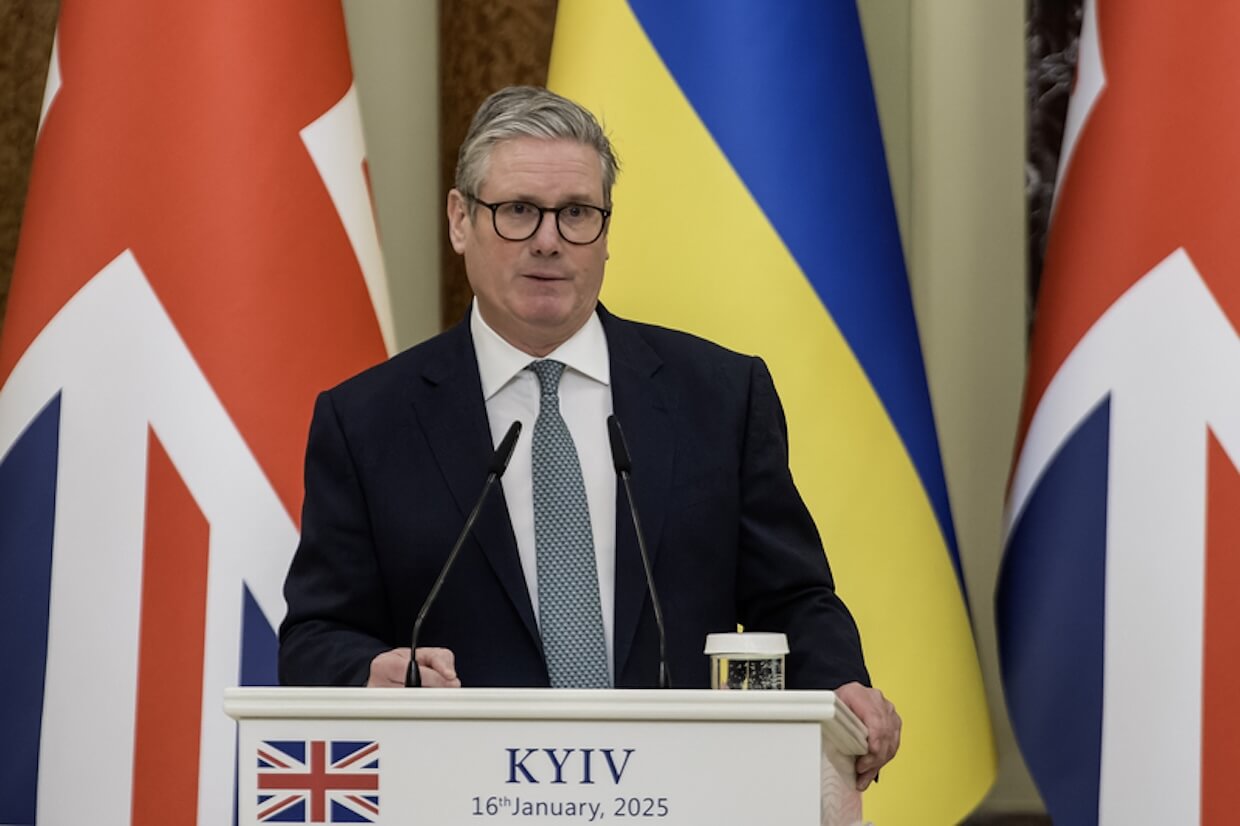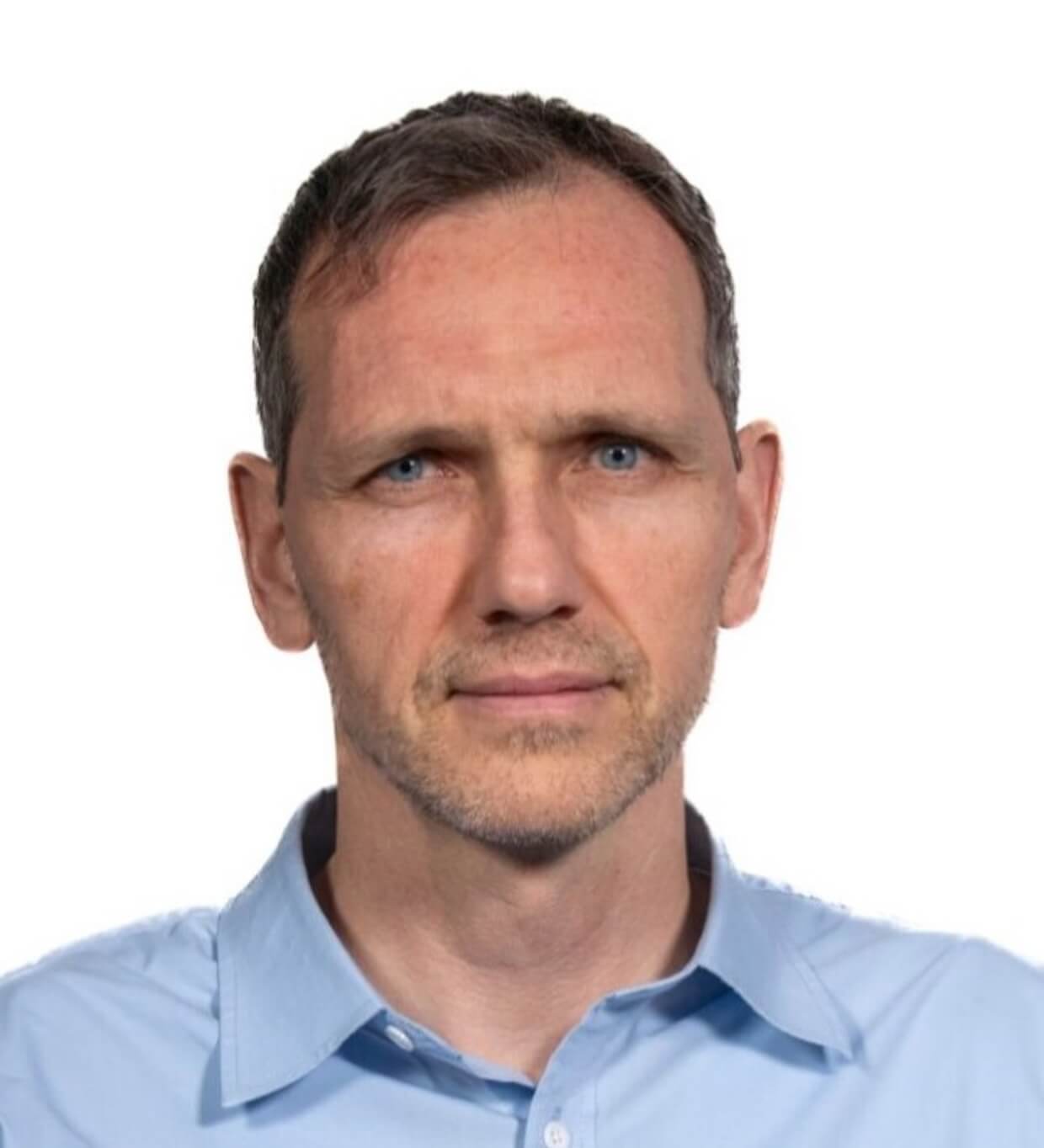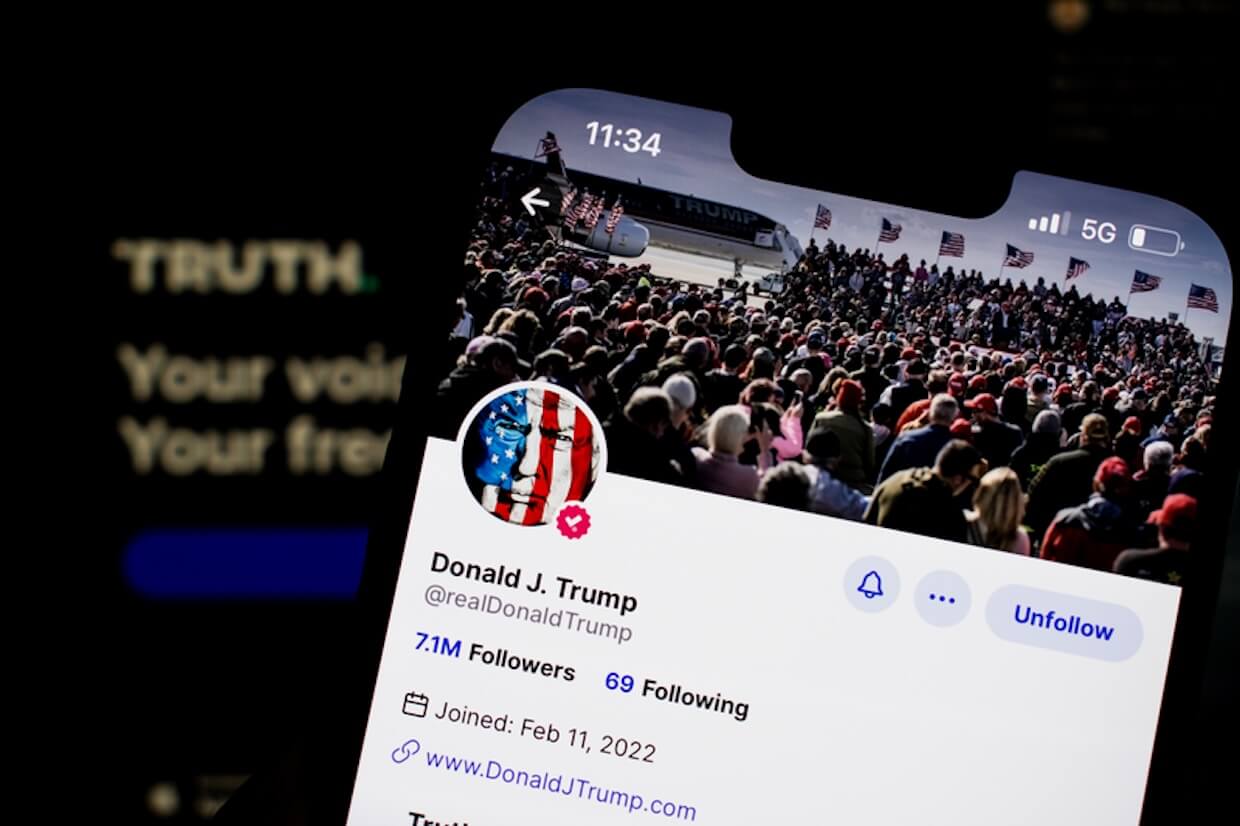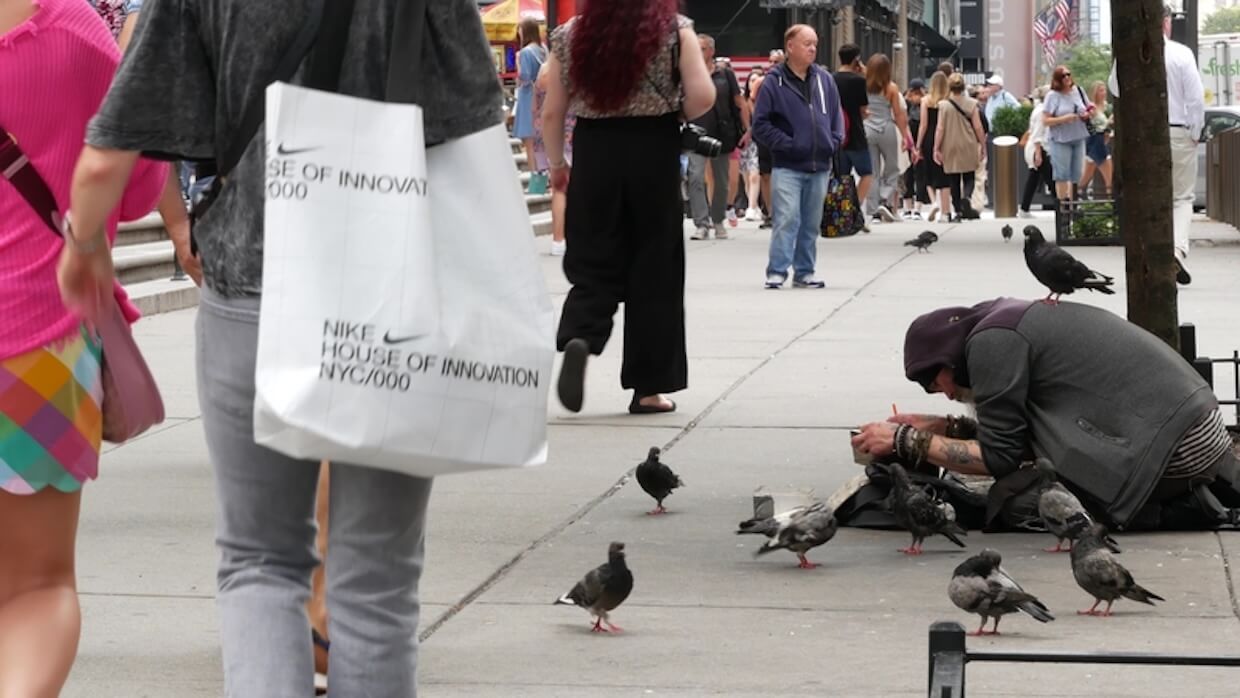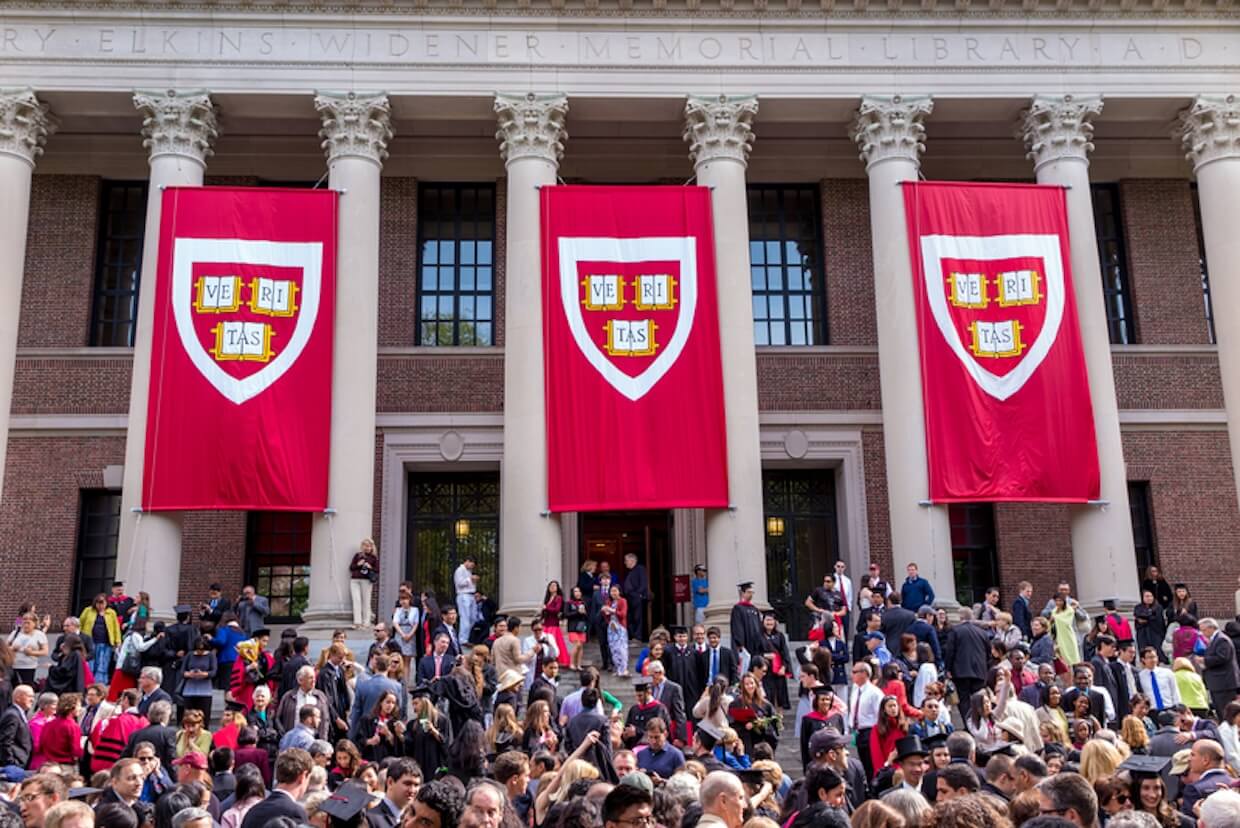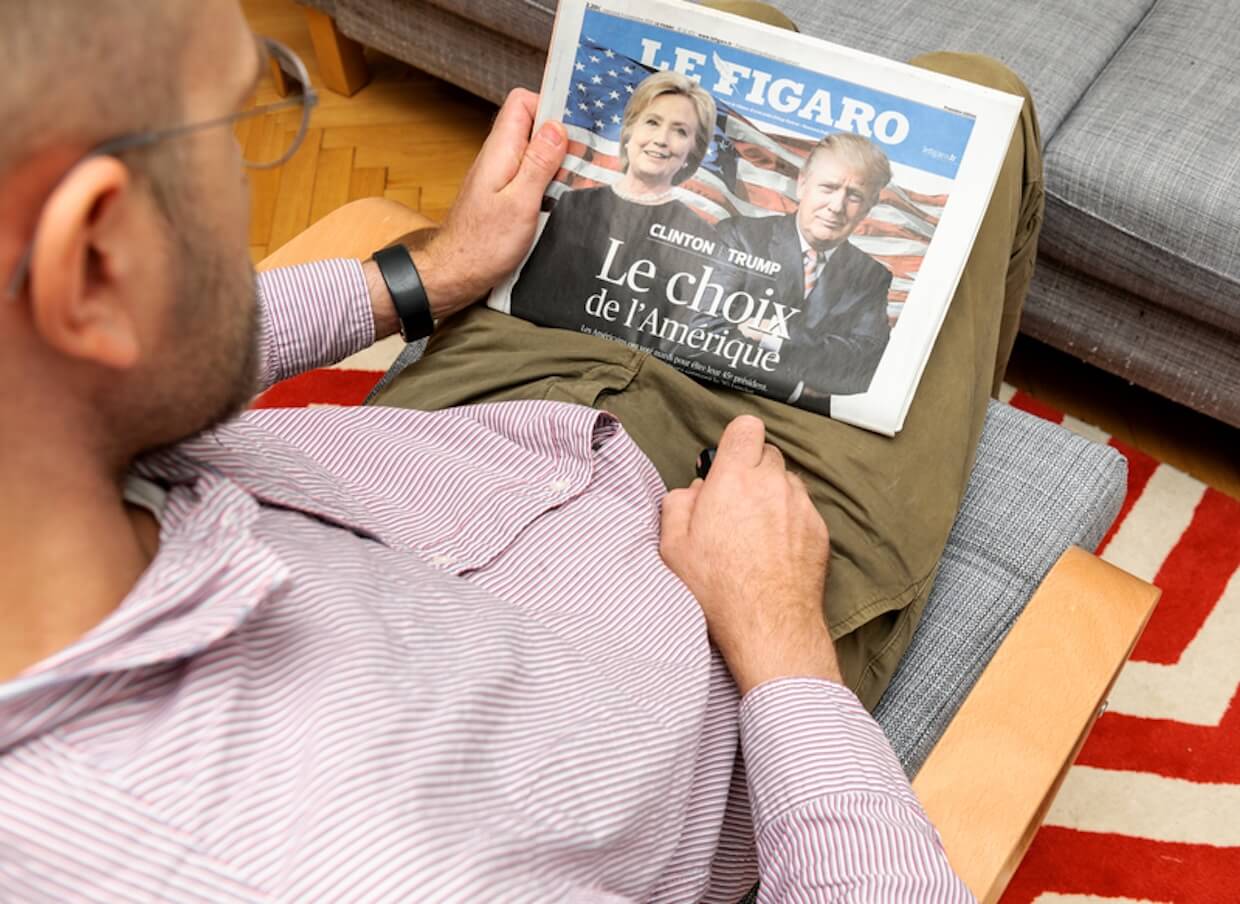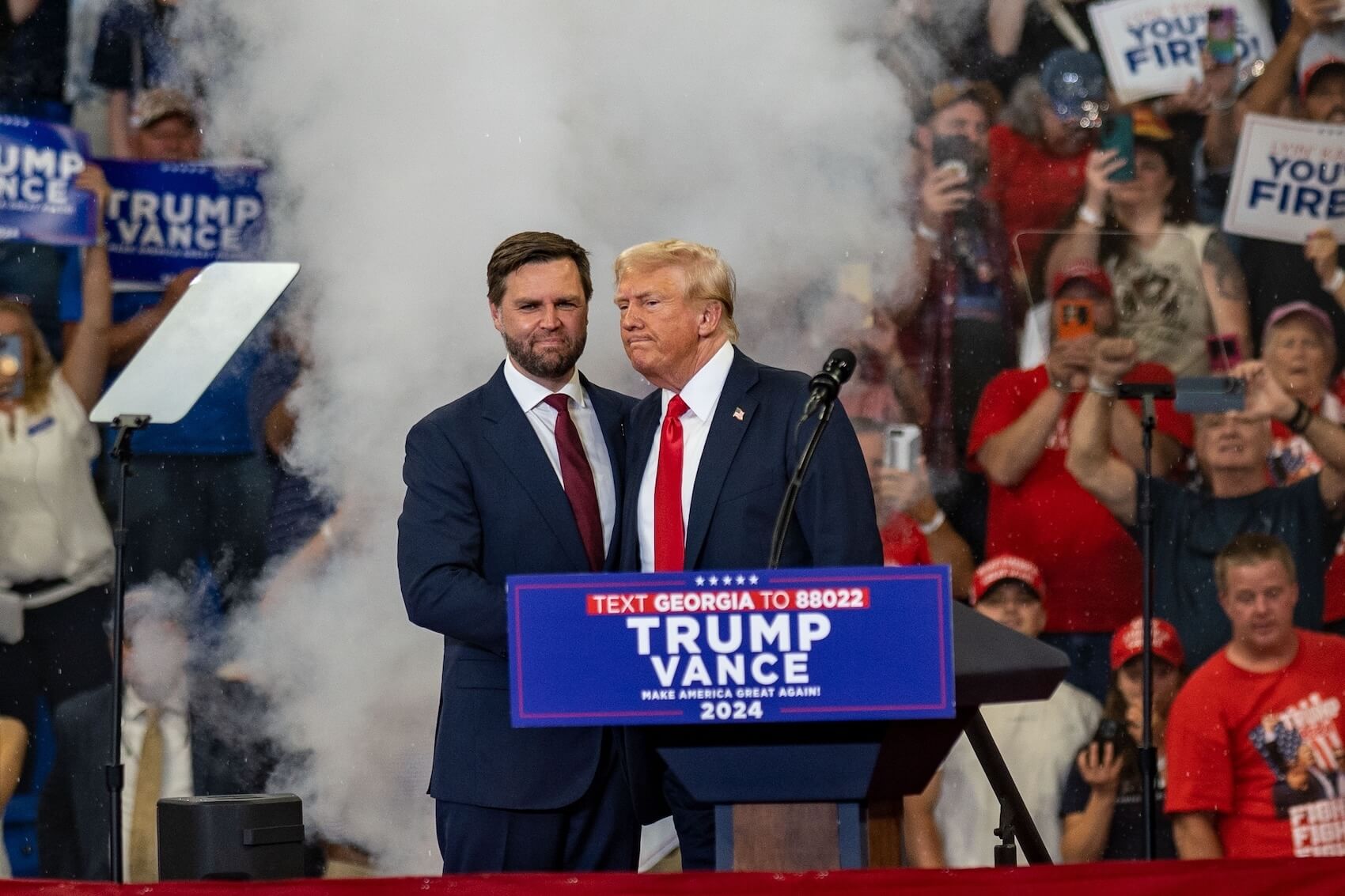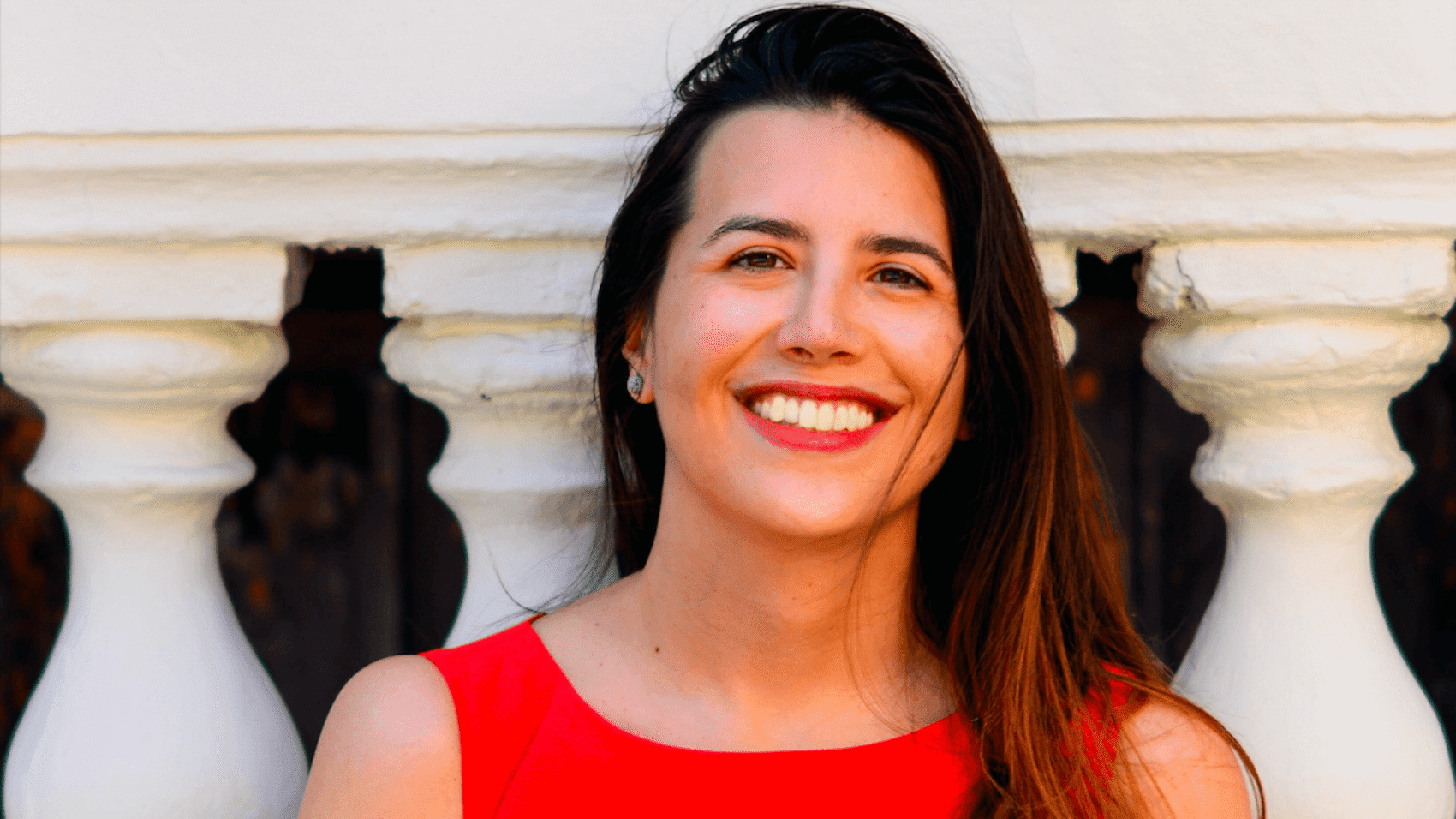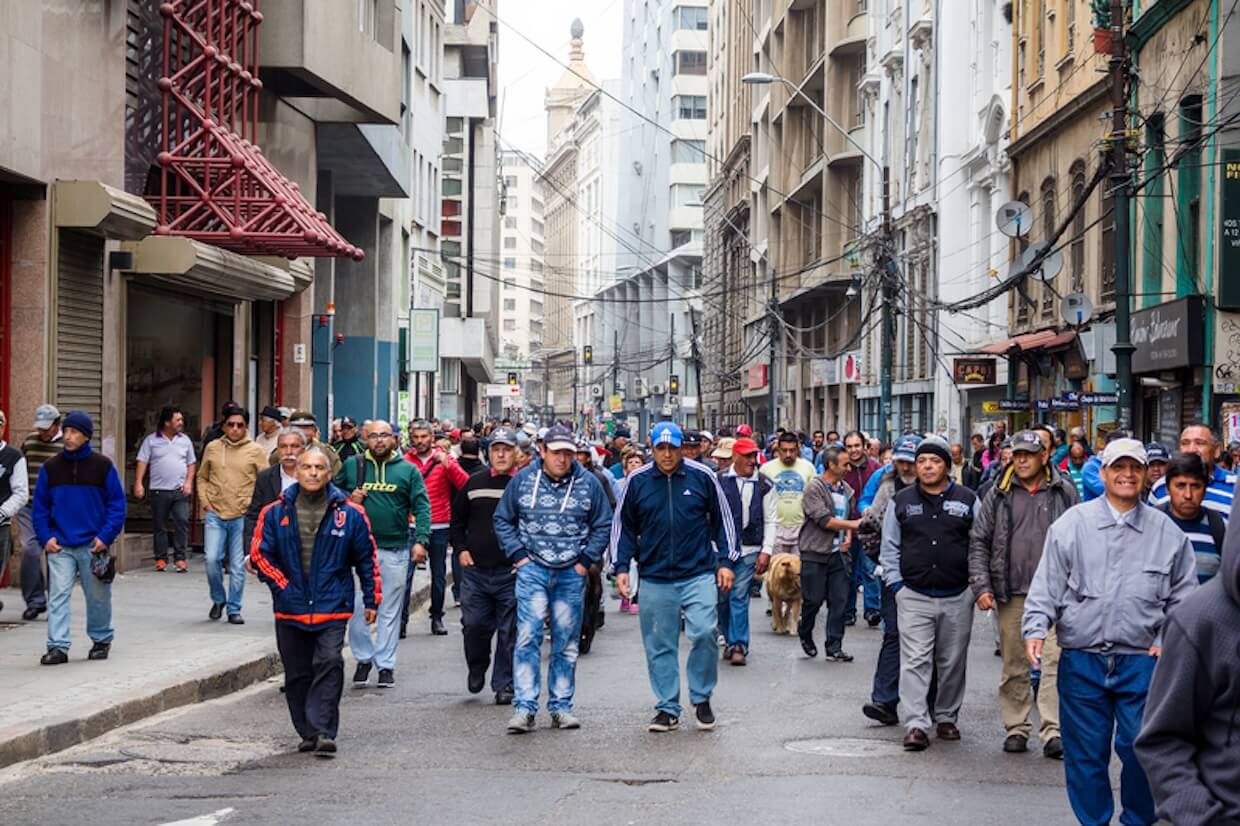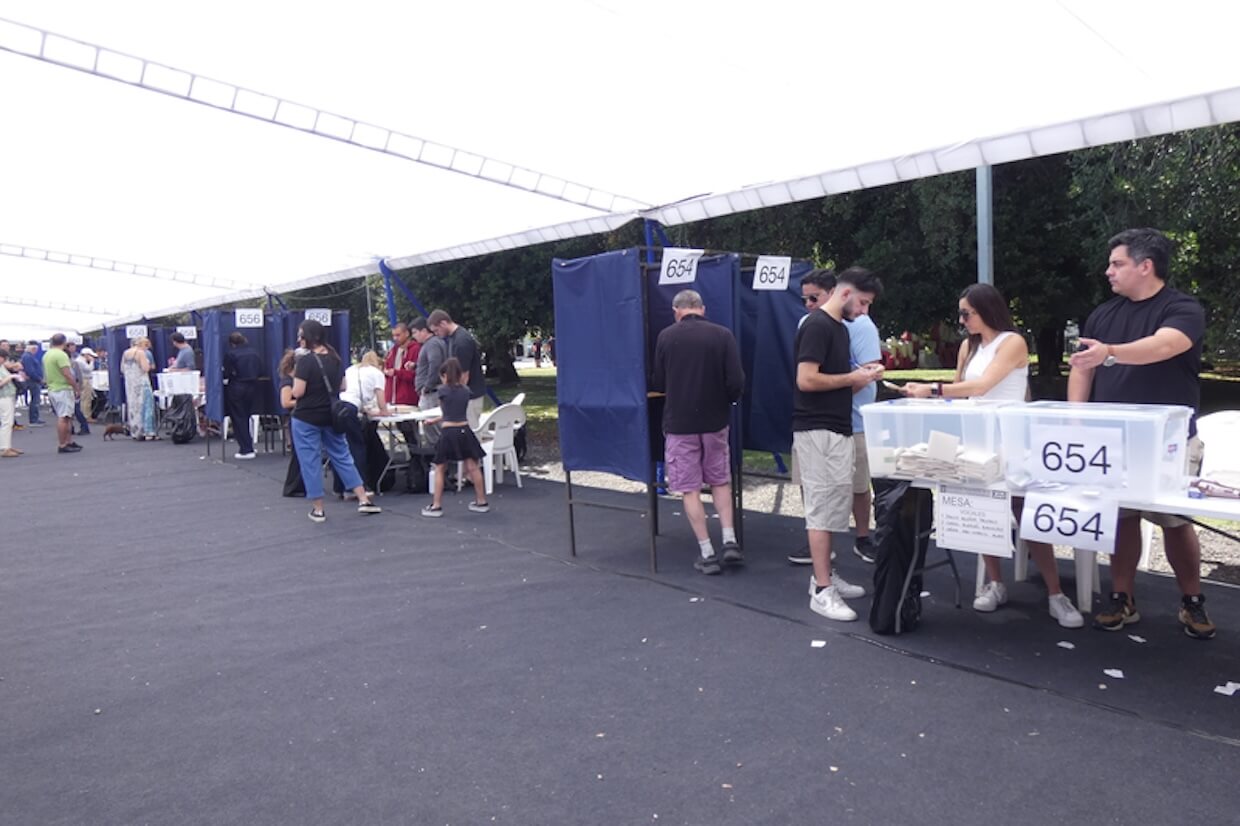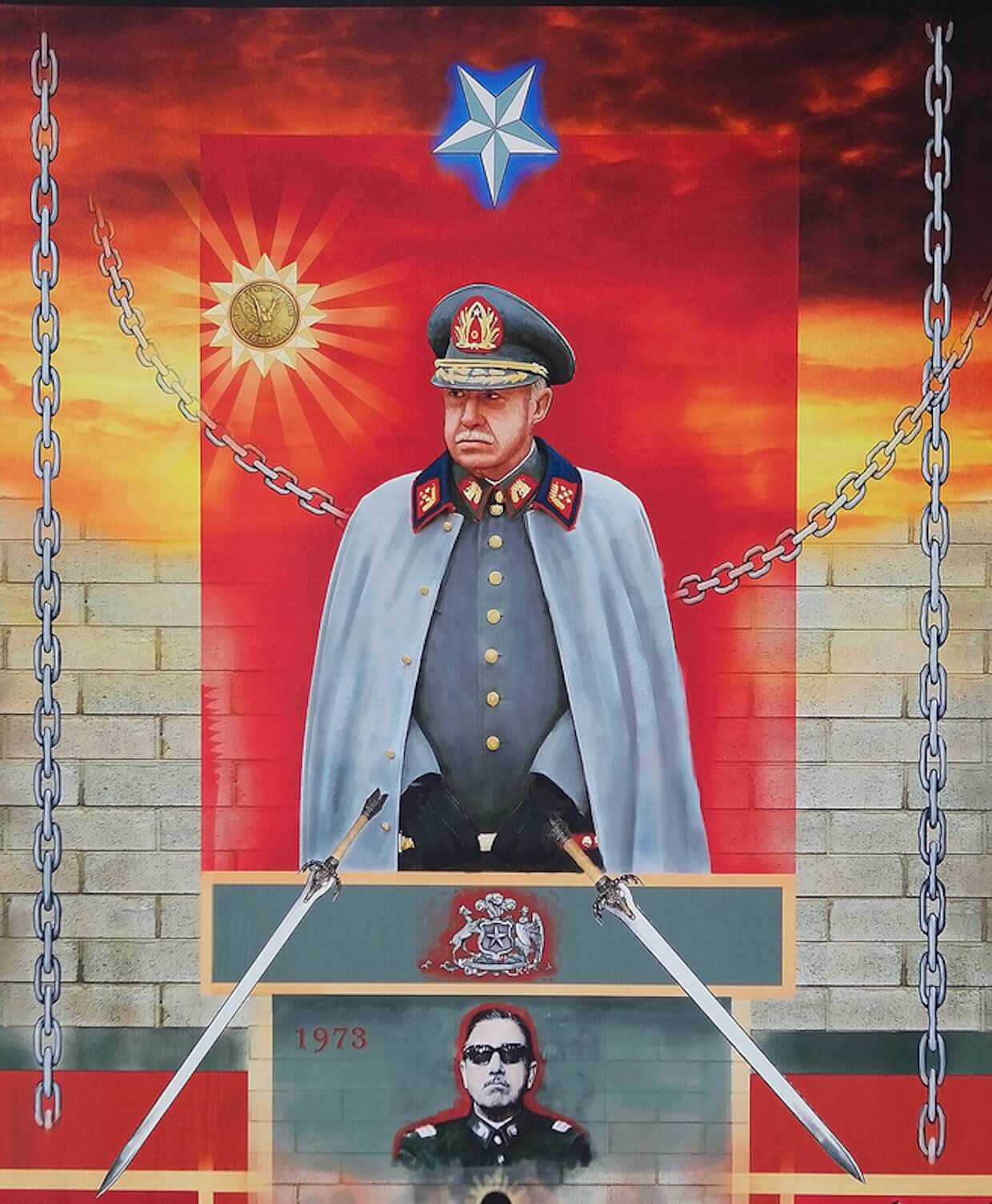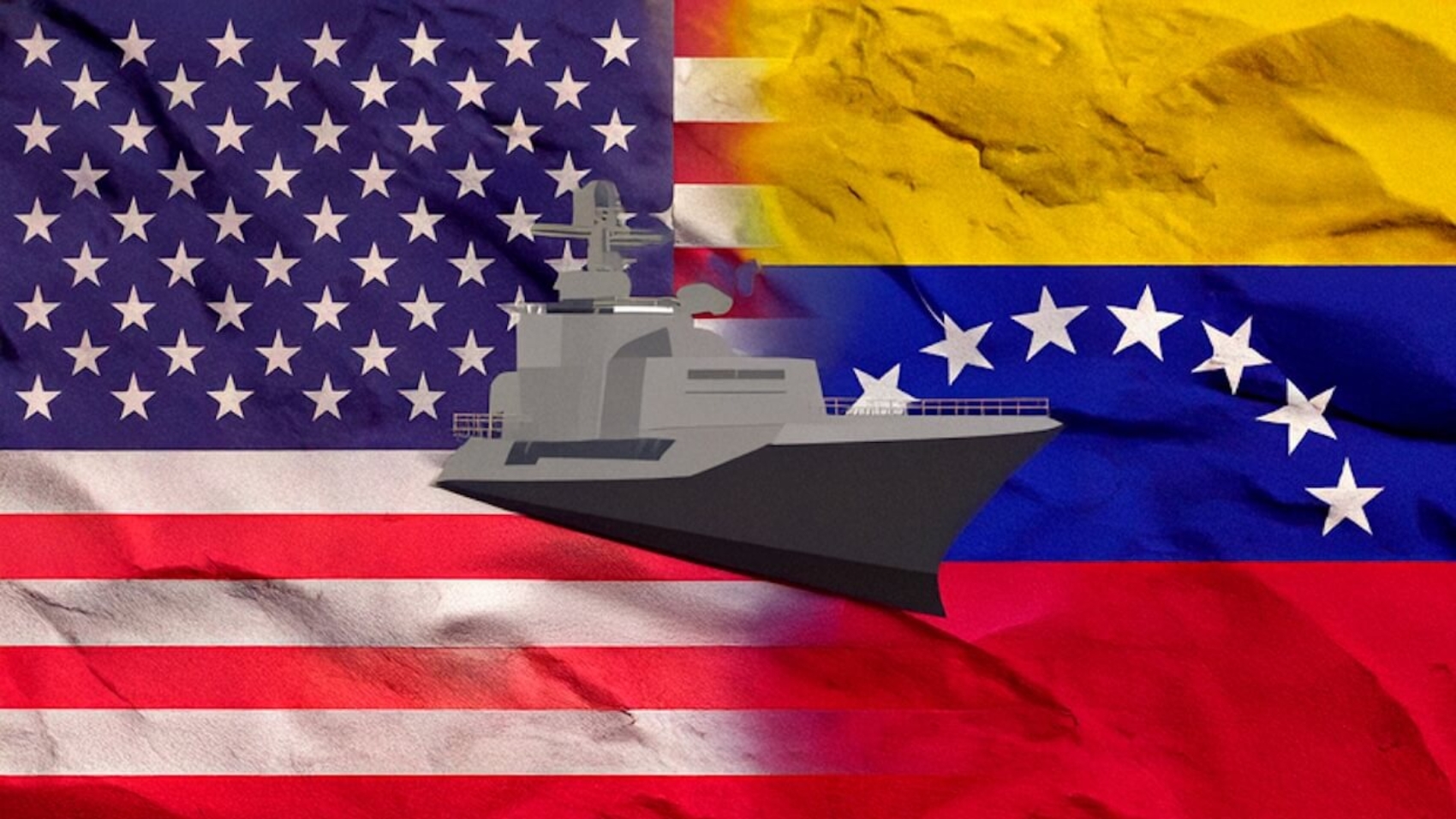Please cite as:
ECPS Staff. (2025). “Virtual Workshop Series — Session 8: Fractured Democracies — Rhetoric, Repression, and the Populist Turn.” European Center for Populism Studies (ECPS). December 13, 2025. https://doi.org/10.55271/rp00120
On December 11, 2025, the ECPS convened Session 8 of its Virtual Workshop Series under the theme “Fractured Democracies: Rhetoric, Repression, and the Populist Turn.” Chaired by Dr. Azize Sargin, the session examined how contemporary populism reshapes democratic politics through affect, moral narratives, and strategic communication. Assoc. Prof. Paul Joosse explored charismatic populism, focusing on suffering, moral inversion, and ritualized transgression in Trumpism, while Artem Turenko analyzed the evolving rhetoric of AfD across the 2019 and 2024 European Parliament elections. Discussants Dr. Helena Rovamo and Dr. Jonathan Madison offered critical reflections on theory, methodology, and causality. A lively Q&A further addressed economic grievance, cultural representation, and the politics of knowledge production, underscoring the session’s interdisciplinary depth and relevance.
Reported by ECPS Staff
On December 11, 2025, the European Center for Populism Studies (ECPS) convened Session 8 of its Virtual Workshop Series, titled “We, the People” and the Future of Democracy: Interdisciplinary Approaches. Held under the session theme “Fractured Democracies: Rhetoric, Repression, and the Populist Turn,” the workshop brought together an international and interdisciplinary group of scholars to examine how contemporary populist actors reshape democratic politics through rhetoric, affect, moral narratives, and strategic communication. The session formed part of ECPS’s broader effort to advance critical, comparative, and theoretically grounded scholarship on populism and its implications for democratic governance.
The workshop opened with brief welcoming and technical remarks by ECPS intern Stella Schade, who introduced the session’s structure, participants, and moderation on behalf of ECPS.
The session was chaired and moderated by Dr. Azize Sargin (Director for External Affairs, ECPS), whose introductory framing provided the conceptual backbone for the discussion. Dr. Sargin situated the session within contemporary debates on democratic fragmentation, emphasizing that populism should be understood not merely as a rhetorical strategy or electoral phenomenon, but as a broader cultural and moral project. She highlighted how populist actors mobilize fear, resentment, and perceived crisis to reorganize political meaning, construct antagonistic identities, and legitimize increasingly exclusionary or punitive forms of governance. Importantly, Dr. Sargin underscored the adaptive nature of populism, noting its capacity to draw on diverse ideological resources, to shift across contexts, and to respond strategically to changing political opportunities. Her framing positioned the session’s papers as complementary explorations of how populism operates at the levels of leadership, discourse, and electoral competition.
The session featured two main presentations. Dr. Paul Joosse (Associate Professor in the Department of Sociology at the University of Hong Kong) delivered a theoretically innovative paper on charismatic populism, focusing on the roles of suffering, moral inversion, and ritualized transgression in sustaining populist authority. Drawing on Weberian sociology, cultural theory, and ethnographic insights from Trump rallies, Dr. Joosse demonstrated how charismatic leaders transform victimhood and norm-breaking into sources of legitimacy, thereby destabilizing democratic norms.
The second presentation, by Artem Turenko (PhD Candidate, National Research University Higher School of Economics, Moscow), offered a comparative analysis of the Alternative für Deutschland’s (AfD) rhetoric during the 2019 and 2024 European Parliament election campaigns. Employing a mixed-methods approach combining sentiment analysis and discourse-historical analysis, Turenko examined how AfD rhetoric adapts to electoral expectations while maintaining a stable populist grammar centered on crisis, sovereignty, and exclusion.
The presentations were followed by in-depth feedback from the session’s discussants, Dr. Helena Rovamo (Postdoctoral Researcher at the University of Eastern Finland) and Dr. Jonathan Madison (Governance Fellow at the R Street Institute). Their interventions critically engaged both papers, raising questions about methodology, conceptual definitions of populism, the relationship between charisma and populist mobilization, and issues of causality and moral paradox. The session concluded with an open Q&A, further extending the discussion to questions of economic grievance, cultural representation, and the political conditions of knowledge production.
Together, the session offered a multifaceted and theoretically rich examination of populism’s role in contemporary democratic transformations.
Assoc. Prof. Paul Joosse: “Charismatic Populism, Suffering, and Saturnalia”
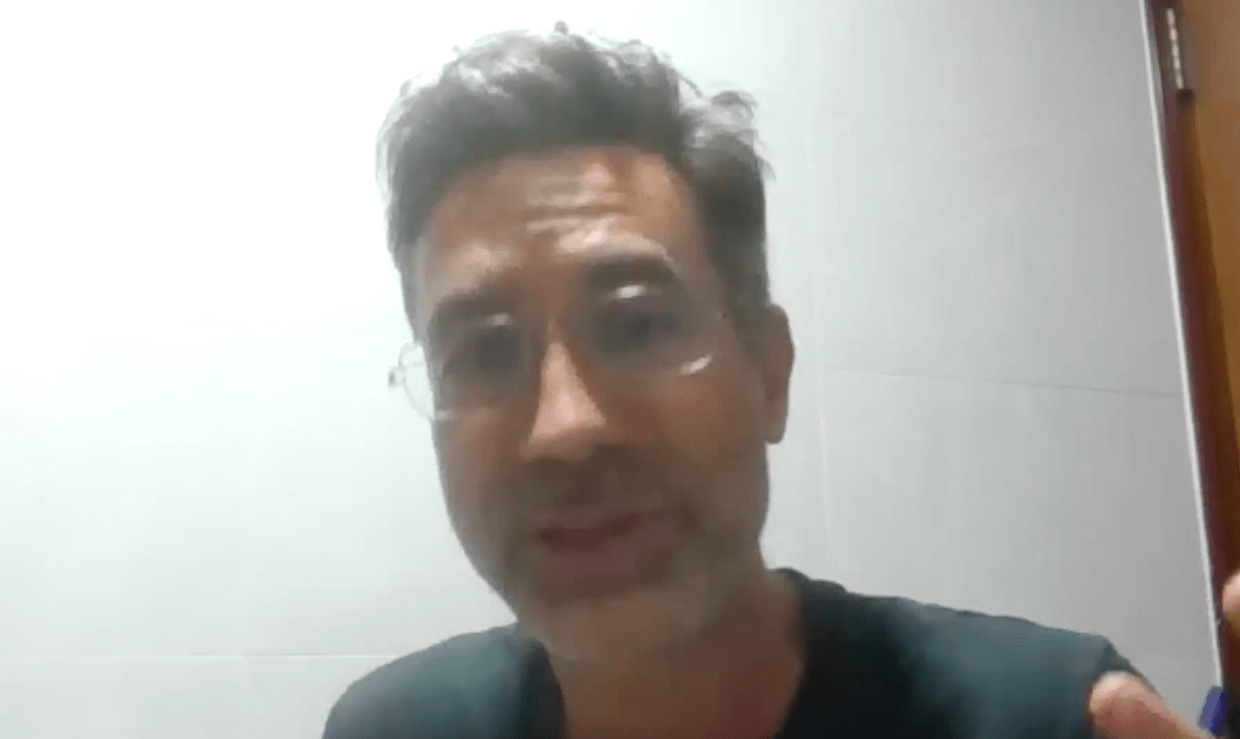
In his thought-provoking presentation, Associate Professor Paul Joosse (University of Hong Kong) offered an analytically rich exploration of the affective and performative mechanisms through which populist leaders cultivate authority, mobilize followings, and enact moments of political rupture. Drawing from his extensive research on charisma, deviance, and political communication, Dr. Joosse located contemporary populism within deeply rooted sociological traditions, while simultaneously illuminating its specific manifestations in digitalized, hyper-mediatized democracies.
The presentation formed part of the broader inquiry into how rhetoric, emotion, and repression reshape democratic life under populist pressures. Dr. Joosse’s intervention focused on three intertwined dimensions—charisma, suffering, and Saturnalian dynamics—and traced how these elements collectively produce the moral and emotional architecture that sustains populist movements.
Charismatic Authority and the Populist Style
Dr. Joosse began by returning to Max Weber’s classical conception of charisma, underscoring its relevance for understanding populist phenomenon. Charisma, in Weber’s formulation, does not reside solely in individual traits; it is a relational, socially conferred status that emerges through recognition by followers. Populist leaders—from Donald Trump to Jair Bolsonaro, from Nigel Farage to Javier Milei—embody this dynamic through the cultivation of an anti-institutional persona that claims direct, unmediated connection with “the people.”
According to Dr. Joosse, populist charisma is characterized by: i) Transgressive communication styles that break norms and dramatize authenticity; ii) Moral binaries that differentiate “the people” from corrupt elites; iii) Performative storytelling that situates the leader as both savior and victim
This last dynamic—the leader as a suffering figure—became a central axis of the presentation. Dr. Joosse argued that charisma is amplified when leaders frame themselves as persecuted champions, unjustly targeted by the state, media, or global conspiracies. This suffering narrative strengthens affective bonds, deepens identification, and transforms personal grievances into collective ones. In this sense, charismatic populism thrives not simply on policy dissatisfaction but on shared emotional worlds—particularly resentment, humiliation, and righteous indignation.
Suffering as Political Currency
A key theoretical intervention of the talk was Dr. Joosse’s insistence that suffering is not merely an effect but an active resource in populist mobilization. Drawing on both sociological and anthropological literature, he argued that suffering has historically served as a legitimizing device, one that enables leaders to claim moral high ground and portray themselves as martyrs of the people.
Dr. Joosse identified three modalities through which suffering functions: i) Victimization narratives, where leaders claim persecution by courts, the “deep state,” or globalist elites. ii) Redemptive suffering, where hardships encountered by leaders are portrayed as sacrifices undertaken on behalf of the people. Iii) Shared suffering, where leaders mirror or echo the injuries of their supporters—economic precarity, cultural displacement, or political marginalization.
This dynamic, Dr. Joosse suggested, is especially potent in digital ecosystems. Persecution—real or imagined—spreads rapidly through partisan outlets and social media networks, reinforcing the conviction that the leader’s fate and the people’s fate are intertwined.
Dr. Joosse emphasized that this logic can escalate political tensions. When suffering becomes a performative spectacle, it invites supporters to interpret legal accountability or institutional checks as proof of elite conspiracy, thereby undermining democratic legitimacy itself.
Populism and the Saturnalian Inversion
One of the most original contributions of the presentation was Dr. Joosse’s application of the concept of Saturnalia—the ancient Roman festival marked by role reversals, carnivalesque transgression, and temporary suspension of social hierarchy—to the study of populism.
Drawing on the work of Mikhail Bakhtin and on sociological accounts of ritual inversion, Dr. Joosse argued that populist mobilization often takes the form of a Saturnalian eruption in democratic politics. During such moments: i) Norms of decorum, expertise, and civility are overturned; ii) Taboo-breaking becomes a marker of authenticity; iii) Power relations appear symbolically reversed, with “the people” momentarily enthroned over elites.
This logic helps explain why populist rallies, online forums, and protest events frequently feature humor, ridicule, spectacle, and deliberate vulgarity. These aesthetic practices work not only to entertain but to destabilize the symbolic order—mocking institutions, lampooning experts, and challenging conventional authority.
In Dr. Joosse’s reading, charismatic populists are uniquely skilled Saturnalian performers. Their rhetorical excesses, anti-elite insults, and affective provocations create temporary spaces where ordinary constraints dissolve, generating feelings of liberation among supporters. However, he warned that this inversion, while framed as emancipatory, can also harden into authoritarian sentiment: when Saturnalia ceases to be temporary, democratic norms risk lasting erosion.
The Interplay of Emotion, Ritual, and Media
Throughout the presentation, Dr. Joosse emphasized that charismatic populism is not merely ideological but ritualistic and affective. It depends on i) Co-present gatherings (the rally as ritual); ii) Digital echo-chambers that amplify transgression; iii) Symbolic dramatization of conflict. Media infrastructures—traditional and digital—serve as essential amplifiers of populist charisma. They broadcast Saturnalian moments, circulate symbolic violence, and feed narratives of leader-centric suffering.
Dr. Joosse noted that the current media ecosystem is fertile ground for such dynamics: fragmented attention, algorithmic escalation, and polarizing news cycles intensify the emotional resonance of populist performances. As a result, charisma becomes mass-mediated, creating parasocial intimacy between leaders and followers who may never meet. This, he argued, distinguishes contemporary populism from earlier forms: it is both personalized and distributed, rooted in individual charisma but sustained by networked amplification.
Implications for Democratic Fragility
Dr. Joosse concluded by situating his analysis within the broader theme of “Fractured Democracies.” The interplay of charismatic authority, symbolic suffering, and Saturnalian rupture presents several dangers for democratic governance: i) Delegitimization of institutional checks when leaders portray legal accountability as persecution; ii) Normalization of political transgression, weakening norms needed for democratic stability; iii) Emotional tribalization, which reduces politics to moralized conflict; iv) Acceleration of epistemic fragmentation as suffering narratives circulate unchecked.
He argued that liberal democracies must take seriously the emotional and ritual dimensions of political life. Technocratic or procedural responses alone cannot counteract populist charisma; rather, democratic actors need to cultivate alternative forms of affective engagement, narrative-building, and civic ritual.
In sum, Assoc. Prof. Paul Joosse delivered a conceptually rich and theoretically innovative account of how populist charisma operates through suffering and Saturnalian inversion. His presentation illuminated the mechanisms by which populist leaders harness emotional energies, disrupt symbolic orders, and generate powerful moments of political transgression. By situating these dynamics within a broader sociological and historical frame, Dr. Joosse provided participants with an analytical vocabulary capable of explaining both the appeal and the democratic risks of contemporary populism.
Artem Turenko: “The Evolution of the Rhetoric of the ‘Alternative for Germany’: A Comparative Analysis of the Election Campaigns for the European Parliament in 2019 and 2024”
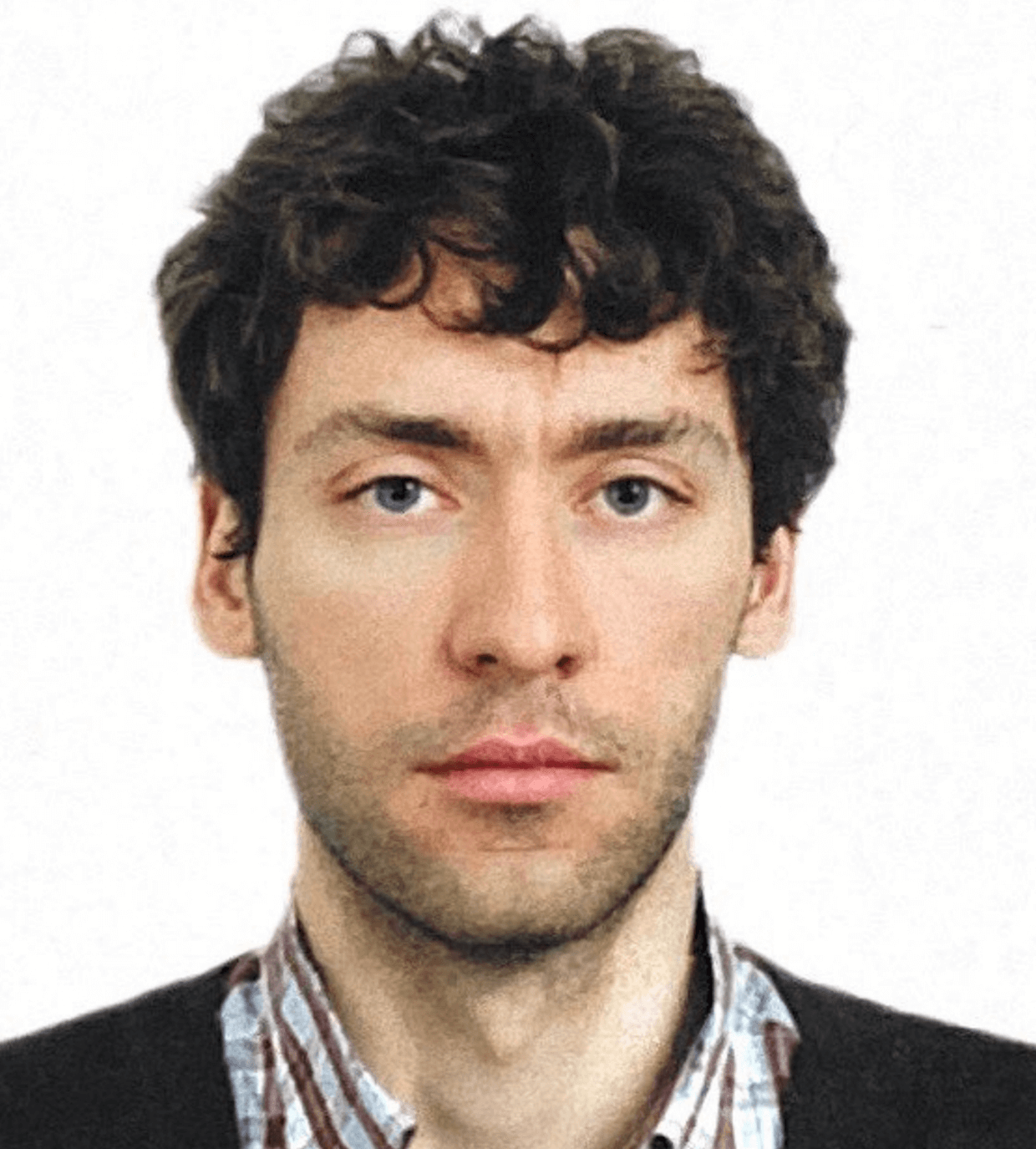
The presentation delivered by Artem Turenko also offered a rigorous comparative analysis of the rhetorical evolution of the Alternative für Deutschland (AfD) across two European Parliament election campaigns—2019 and 2024. Situated at the intersection of political linguistics, populism studies, and European politics, Turenko’s research interrogates a widely held assumption in the literature on populism: that populist parties strategically soften their rhetoric when electoral success is uncertain and radicalize it when victory appears likely. Through a mixed-methods approach combining quantitative content analysis, sentiment analysis, and discourse-theoretical insights, the study provides a nuanced, partially counterintuitive answer.
The analytical strength of the presentation lies not merely in its empirical findings, but in how it captures the AfD’s rhetorical balancing act as a populist actor transitioning from peripheral challenger to semi-mainstream contender within both German and European political spaces. The AfD’s participation in the Identity and Democracy (ID) faction—and later its exclusion and reconfiguration into the “Europe of Sovereign Nations” group—forms a crucial contextual backdrop shaping its discursive strategies.
Methodological Architecture and Analytical Scope
Turenko’s research is grounded in a systematic comparison of two core textual corpora: the AfD’s European Parliament election programs (2019 and 2024) and accompanying campaign posters. Employing ATLAS.ti software, the author conducts sentiment analysis at the paragraph level while also mapping thematic clusters and key lexical markers associated with right-wing populism. Complementing this quantitative layer is a qualitative discourse-theoretical lens inspired by the concept of topoi, particularly as developed in the discourse-historical approach (DHA). This allows the study to trace recurring argumentation schemes such as crisis, threat, sovereignty, and decline.
Crucially, the analysis does not treat rhetoric as a static ideological artifact but as a strategic instrument shaped by electoral expectations, factional alliances, and shifting political opportunity structures at the European level.
Continuity Beneath Change: Thematic Stability Across Campaigns
One of the central findings emphasized in both the presentation and the underlying paper is the remarkable thematic continuity in AfD rhetoric across the two campaigns. Migration, Islam, sovereignty, and skepticism toward supranational governance remain the party’s rhetorical backbone in both 2019 and 2024. Even as the European and domestic political environments changed dramatically—marked by pandemic aftermath, energy crises, war in Ukraine, and geopolitical instability—the AfD’s core narrative of a threatened nation embedded within a dysfunctional EU persisted.
According to Turenko, this continuity suggests that the AfD’s populism is less reactive than structurally embedded. Rather than reinventing its agenda, the party selectively recalibrates emphasis while maintaining a stable ideological grammar. This is particularly visible in the sustained dominance of negative emotional tonality across both election programs. In absolute terms, the 2024 manifesto contains even more negatively coded paragraphs, although this increase is partly attributable to the expanded length of the document.
Rhetorical Radicalization Without Emotional Escalation
The study’s most analytically significant contribution lies in its challenge to the expectation that greater electoral success necessarily produces harsher rhetoric. While Turenko demonstrates an increased frequency of lexical markers associated with right-wing populism in 2024—such as “danger,” “threat,” “ban,” and “reject”—the overall emotional tone of the rhetoric changes only marginally. Negative sentiment remains dominant, but not dramatically more intense.
This apparent paradox becomes intelligible through a third-eye reading: the AfD radicalizes not by amplifying emotional hostility, but by broadening the semantic ecology of crisis. In 2019, crisis discourse was relatively narrow, focused primarily on migration and the euro. By 2024, the crisis topos expands to encompass energy, gas, climate, gender, public health, and global finance. The party thus multiplies perceived threats without fundamentally altering its emotional register. Crisis becomes omnipresent, normalized, and structurally embedded rather than rhetorically explosive.
Strategic Softening and Discursive Moderation
Equally revealing is what disappears from the AfD’s rhetoric. The complete absence of the term “Dexit” in the 2024 program—after its notable presence in 2019—signals a tactical softening on the issue of EU withdrawal. From a third-eye perspective, this omission reflects strategic moderation rather than ideological retreat. The AfD reframes its Euroscepticism from exit-oriented rupture to internal resistance and sovereignty reclamation, aligning more closely with the broader ID faction’s stance as articulated in documents such as the Antwerp Declaration.
At the same time, the emergence of “gender ideology” as a distinct thematic field in 2024 indicates an effort to expand the party’s cultural conflict repertoire. This shift mirrors transnational right-wing populist trends and suggests a strategic attempt to mobilize new constituencies without abandoning core voters.
Visual Rhetoric and Populist Simplification
The comparative analysis of campaign posters reinforces these conclusions. While the 2019 visuals were narrowly focused on border security and migration control, the 2024 posters display a significantly broader issue spectrum, including family policy, energy security, freedom of speech, and EU power limitation. Yet, the emotional architecture remains consistent: short imperatives, exclamatory slogans, and stark binaries. The substitution of “crisis” with “chaos” in visual rhetoric exemplifies how the AfD preserves affective intensity while updating its symbolic vocabulary.
In sum, Turenko’s presentation demonstrates that the AfD’s rhetorical evolution between 2019 and 2024 is best understood as adaptive recalibration rather than linear radicalization or moderation. The party intensifies populist markers and expands its crisis narrative while simultaneously avoiding discursive moves that could alienate broader electorates or constrain coalition possibilities at the European level. The AfD emerges as a populist actor increasingly skilled in managing the tension between ideological rigidity and strategic flexibility. The study thus offers valuable insights not only into German right-wing populism, but also into the broader dynamics of populist normalization within contemporary European politics.
Discussant Feedback and Responses
Dr. Helena Rovamo’s Feedback on Dr. Paul Joosse’s Presentation
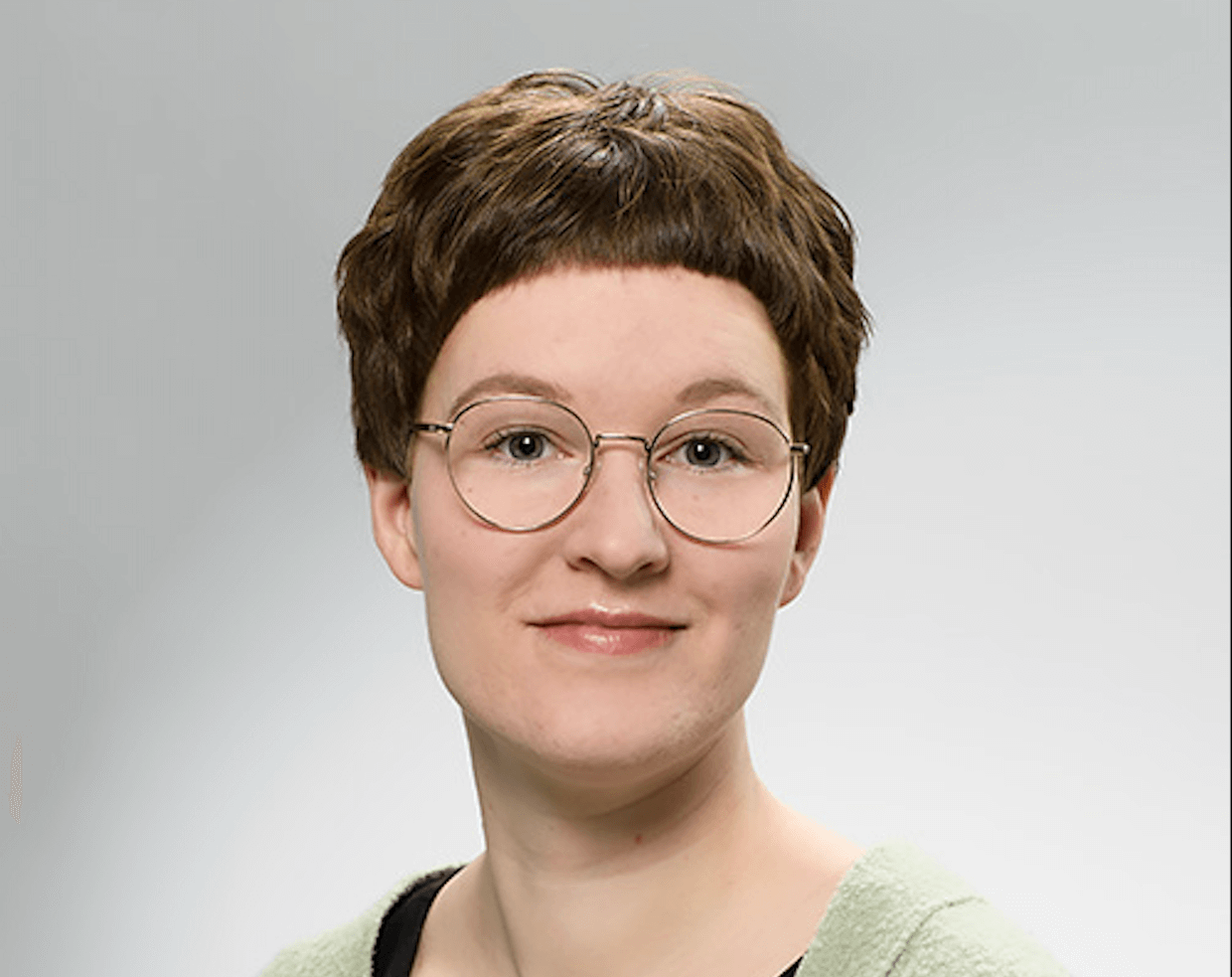
Session’s first discussant Dr. Helena Rovamo’s feedback on Assoc. Prof. Paul Joosse’s presentation constituted a thoughtful and methodologically attentive intervention that both affirmed the scholarly value of the work and pushed its conceptual boundaries. Positioned within the broader framework of the ECPS workshop, her remarks underscored a shared recognition among presenters that populism must be understood not merely as a strategic or rhetorical phenomenon, but as one deeply embedded in affect, morality, and social relations.
Dr. Rovamo’s engagement unfolds along three analytically distinct yet interconnected axes: methodology, theory, and empirical generalization. First, her methodological inquiry into Dr. Joosse’s ethnographic practice at political rallies foregrounds the often-overlooked relational dynamics of fieldwork. By asking how rally participants experienced being approached by a researcher, Dr. Rovamo implicitly raises questions about reflexivity, power, trust, and emotional negotiation in politically charged environments. This intervention situates populism research within broader debates in qualitative sociology concerning the co-production of data and the affective dimensions of knowledge generation.
Second, Dr. Rovamo’s theoretical questioning targets the conceptual interface between charisma and populism. Rather than accepting their linkage as self-evident, she presses Dr. Joosse to clarify whether charisma constitutes the essence of populism, a parallel phenomenon, or an underlying social mechanism that populist rhetoric mobilizes. This line of questioning reflects a concern with analytical precision and signals the risk of conceptual conflation. Her comments invite a deeper theorization of whether populism should be understood primarily as discursive performance, moral framing, or charismatic social bonding.
Finally, Dr. Rovamo’s reflections on Donald Trump and the apparent durability of his support introduce a critical temporal dimension. By asking whether anything can weaken Trump’s charisma or the broader MAGA movement, she challenges static understandings of charismatic authority. This question opens space for considering erosion, routinization, or transformation of charisma under conditions of scandal, failure, or institutionalization.
Assoc. Prof. Joosse’s Response
Assoc. Prof. Paul Joosse’s response to Dr. Rovamo’s feedback offered a theoretically rich and reflexively grounded clarification of his methodological choices and conceptual commitments. His intervention can be read as an effort to reposition charisma theory as an indispensable, yet insufficiently integrated, component of contemporary populism studies—while simultaneously demystifying the empirical mechanics of researching charismatic movements in situ.
On the methodological plane, Dr. Joosse addressed concerns regarding fieldwork at Trump rallies by reframing such spaces as inherently dialogical rather than hostile research environments. He emphasized that MAGA rallies function as political forums in which participants are not only ideologically motivated but socially primed for interaction. The combination of extended waiting periods, strong collective identity, and expressive political culture renders rally-goers unusually accessible to qualitative inquiry. This response implicitly challenges assumptions about populist publics as suspicious or closed off, instead portraying them as actively seeking recognition and discursive engagement. From an analytical standpoint, Dr. Joosse thus normalizes populist spaces as legitimate sites of sociological encounter rather than exceptional or epistemically compromised arenas.
The theoretical core of Dr. Joosse’s response lies in his articulation of charisma theory and populism theory as complementary rather than competing frameworks. He conceptualizes populism as a relational dynamic centered on the people–elite antagonism, while charisma theory foregrounds leadership and authority grounded in popular legitimacy operating outside institutional norms. Importantly, Dr. Joosse resists reductive equivalence: not all populism is charismatic, and not all charisma is populist. Yet, he argues that each framework addresses the blind spots of the other—charisma theory often under-theorizing collective authorization, and populism theory under-specifying leadership dynamics. His response positions this synthesis as a broader scholarly project aimed at rebalancing agency between leaders and followers.
Dr. Joosse’s reflections on Donald Trump further extend this synthesis through a Weberian lens. Drawing on Max Weber’s concept of routinization, he suggests that charismatic power rarely collapses due to external critique or scandal. Instead, it dissipates internally as followers transform revolutionary authority into ritualized tradition. Trump’s future, in this reading, hinges less on opposition strategies than on whether his movement eventually converts his exceptionalism into reproducible form—akin to the symbolic afterlife of figures such as Ronald Reagan.
Dr. Joosse also underscores the destabilizing nature of charismatic authority. By redefining political rules and defying normative expectations, charismatic leaders render conventional democratic “playbooks” ineffective. This, he argues, explains why institutional actors historically resort to coercive measures when legitimacy contests fail. Dr. Joosse’s response situates Trumpism not as an anomaly, but as a classic instance of charismatic disruption—one whose resolution remains structurally indeterminate rather than strategically manageable.
Dr. Rovamo’s Feedback on Artem Turenko’s Presentation
Dr. Helena Rovamo’s feedback on Artem Turenko’s presentation offered a constructive and analytically focused engagement that both affirmed the scholarly value of the study and probed its core assumptions. Her intervention can be understood as an invitation to strengthen the explanatory architecture of the research by sharpening its theoretical logic and methodological transparency.
Dr. Rovamo began by recognizing the contribution of Turenko’s work to the study of populist rhetoric, particularly highlighting its emphasis on temporal change. She framed this diachronic perspective as a significant strength, noting that tracing how populist communication evolves across electoral cycles enriches existing understandings of populism as a dynamic rather than static phenomenon.
At the same time, Dr. Rovamo raised a fundamental theoretical challenge to the study’s central assumption: that populist parties soften their rhetoric when electoral success is uncertain and harden it when victory appears likely. Drawing on intuitive and strategic reasoning, she suggested an alternative expectation—namely, that parties with little to lose might radicalize more aggressively, while those nearing electoral success might moderate their tone to consolidate broader, centrist support. This question did not dismiss the proposed hypothesis but called for a clearer articulation of its underlying causal logic.
Her critique then shifted to methodology. Dr. Rovamo queried how Turenko inferred the AfD’s expectations of winning or losing across different campaigns, implicitly pointing to the difficulty of operationalizing party perceptions and strategic calculations. She suggested that other explanatory variables—beyond electoral anticipation—might account for rhetorical shifts, thereby encouraging a more pluralistic causal framework.
Finally, Dr. Rovamo turned to the analysis of campaign posters, proposing that future research might benefit from incorporating systematic visual analysis. She implied that visual rhetoric could reveal affective and symbolic dimensions of populism not fully captured through textual analysis alone.
Artem Turenko’s Response
Artem Turenko’s response to Dr. Helena Rovamo’s feedback constituted a reflective and forward-looking clarification of his theoretical assumptions and research design. His intervention can be read as an attempt to situate his findings within an ongoing scholarly debate while acknowledging both the provisional nature of his conclusions and the broader trajectory of his doctoral research.
Addressing the central theoretical challenge, Turenko defended his hypothesis concerning the relationship between electoral expectations and rhetorical intensity by situating it within an existing, though contested, body of literature on populist strategy. He emphasized that scholarly findings on rhetorical “softening” and “hardening” are not uniform and often vary depending on whether populist parties operate in government or opposition. By invoking comparative cases—such as governing populist parties in Hungary versus opposition populists in Western and Central Europe—he underscored the importance of positional context in shaping rhetorical behavior. From an analytical standpoint, this response reframed his assumption not as a deterministic rule but as a context-sensitive proposition.
Methodologically, Turenko clarified that his inference regarding the AfD’s expectations of electoral success was grounded in longitudinal polling data, regional election outcomes, and observable trends in voter support—particularly the party’s sustained gains in eastern German Länder and its expanding appeal in western regions. He acknowledged, however, that the literature offers no definitive consensus on how electoral anticipation translates into rhetorical strategy, thereby implicitly accepting Dr. Rovamo’s call for theoretical openness.
Finally, Turenko addressed the suggestion to incorporate visual analysis by situating the current study within the constraints of an article-length publication. He explained that while posters were included as supplementary material, a systematic visual analysis exceeds the scope of the present article. Importantly, he positioned this limitation as temporary, outlining plans for a more comprehensive, multi-level and multimodal analysis in his doctoral thesis, encompassing regional, federal, and European elections.
Dr. Jonathan Madison’s Feedback on Dr. Joosse’s Presentation

Dr. Jonathan Madison’s feedback on Assoc. Prof. Paul Joosse’s presentation constituted a dense and multi-layered scholarly intervention that simultaneously affirmed the contribution of the research and pressed it toward greater conceptual and explanatory depth. Madison’s remarks can be read as an effort to situate Dr. Joosse’s analysis of charismatic populism within broader debates on moral order, religious symbolism, and ideological asymmetry.
Dr. Madison began by foregrounding a foundational concern shared across populism studies: the contested nature of the concept itself. By encouraging presenters to clarify their operative definitions of populism, he implicitly highlighted the stakes of conceptual framing for empirical interpretation. This move positioned Dr. Joosse’s work within a wider methodological conversation about what, precisely, scholars are identifying when they analyze populist movements—style, ideology, moral narrative, or social relation.
Turning specifically to Dr. Joosse’s paper, Dr. Madison expressed strong appreciation for its treatment of victimhood as a constitutive element of charismatic populism. He underscored the value of Dr. Joosse’s analysis in showing how narratives of persecution forge an intimate, morally charged bond between leader and followers. Yet Dr. Madison’s feedback was not merely confirmatory; it pivoted toward a series of probing questions that exposed internal tensions within this framework.
A central paradox Dr. Madison identified concerns Christianity. He questioned how Donald Trump can successfully mobilize a sense of Christian oppression when Christianity itself remains a dominant moral framework in American society—and when Trump routinely violates its ethical norms. This question destabilizes simple oppositions between hegemonic morality and populist rebellion, suggesting instead a more complex moral inversion in which norm violation becomes a source of authenticity and solidarity.
Relatedly, Dr. Madison invited Dr. Joosse to reflect on the role of liberalism, neoliberalism, and capitalism as perceived antagonists within Trumpist rhetoric. He proposed that these abstract systems may function as the true objects of rebellion, allowing Christianity to be reframed as a victimized tradition rather than a ruling moral order. This line of inquiry situates charismatic populism within a broader ideological backlash against modernity and abstraction.
Dr. Madison also drew attention to Dr. Joosse’s brief mention of physical suffering, asking whether moments such as Trump’s assassination attempt—and the symbolic solidarities that followed—should be more fully integrated into the analysis. Finally, he raised a critical asymmetry: why condemnation from Trump’s opponents strengthens in-group cohesion, while Trump’s own insults fail to alienate his supporters. This question challenges conventional theories of moral offense and reciprocity.
Assoc. Prof. Joosse’s Response
Assoc. Prof. Paul Joosse’s response to Dr. Jonathan Madison’s feedback offered a nuanced and reflexive elaboration of the moral, religious, and sociological paradoxes embedded in contemporary charismatic populism. His intervention can be read as an effort to theorize contradiction not as a weakness of Trumpism, but as one of its constitutive sources of power.
Addressing Dr. Madison’s question concerning Christianity, Dr. Joosse began by disentangling two analytically distinct issues: Christianity as a hegemonic moral framework and Christianity as a site of internal contestation. While acknowledging that American civil religion is historically rooted in Christianity, he emphasized that hegemonic status does not preclude intense intra-Christian struggle. Competing interpretations of moral authority, decline, and authenticity allow segments of Christianity to frame themselves simultaneously as historically dominant and presently dispossessed. In this sense, Trumpism draws on a narrative of loss rather than marginality, positioning Christianity as a tradition under siege that must be restored rather than defended.
Dr. Joosse then confronted the apparent contradiction of Trump as a Christian figure. Rather than denying the tension, he theorized it as central to charismatic legitimation. Drawing on interview material, he highlighted how supporters distinguish between moral perfection and divine instrumentality. Trump is not venerated as a moral exemplar but accepted as a flawed vessel—often analogized to biblical figures such as King Cyrus—through whom a higher purpose is enacted. This framing allows supporters to bracket Trump’s personal transgressions without undermining his perceived mission, reinforcing rather than weakening charismatic attachment.
On the question of modernity and ideological backlash, Dr. Joosse cautiously acknowledged the relevance of global order, nationalism, and resistance to transnational governance. Yet he underscored a methodological asymmetry between macro-level explanations and micro-level meaning-making. From his ethnographic standpoint, supporters rarely articulate their grievances in abstract ideological terms such as neoliberalism or globalization. Instead, these structural forces are translated into experiential narratives of cultural displacement and moral erosion, suggesting that charismatic revolt operates through lived affect rather than formal ideology.
Dr. Joosse’s reflections on physical suffering further deepened the analysis. He interpreted Trump’s public emphasis on bodily harm—particularly following the assassination attempt—as a powerful act of sacralization. The visual and symbolic replication of injury by supporters, including comparisons to Christian iconography of sacrifice, transforms vulnerability into proof of devotion. Suffering thus becomes a resource for charismatization, dramatizing personal risk as evidence of moral commitment.
Finally, Dr. Joosse addressed Dr. Madison’s question about asymmetric moral judgment. Rather than treating the double standard as a puzzle to be solved, he reframed it as a defining feature of charismatic authority. Operating outside conventional moral and institutional rules, charismatic figures are granted exceptional latitude by their followers, who reinterpret norm violations as authenticity, strength, or combativeness. From this perspective, Trump’s immunity to disqualification is not anomalous but exemplary of charisma’s capacity to suspend ordinary evaluative frameworks.
Taken together, Dr. Joosse’s response advanced a compelling sociological insight: charismatic populism thrives not despite moral contradiction, but through its capacity to absorb, reinterpret, and weaponize it.
Dr. Jonathan Madison’s Feedback on Artem Turenko
Dr. JMadison’s feedback on Artem Turenko’s presentation and paper constituted a careful and theoretically oriented intervention that both affirmed the empirical quality of the research and pressed for greater conceptual rigor. Dr. Madison’s comments can be read as an effort to sharpen the analytical foundations upon which claims about populism and rhetorical change are built.
Dr. Madison began by commending the methodological strength of Turenko’s study, particularly the systematic analysis of campaign messaging and the careful handling of empirical material. He framed the paper as a valuable contribution that other scholars could readily build upon, thereby situating it positively within the broader field of populism research.
At the core of his feedback, however, lay a sustained concern with conceptual clarity. Dr. Madison emphasized that while “populism” is frequently invoked, it remains a deeply contested concept, and he noted that the paper does not sufficiently define how populism is understood or operationalized. He questioned the implicit assumption that references to danger, threat, or crisis can be treated as inherently populist, pointing out that such language may equally characterize ideological projects grounded in nationalism, authoritarianism, or even fascism. From this perspective, Dr. Madison challenged the paper to explain what distinguishes populist rhetoric from other forms of radical or right-wing political communication.
Relatedly, Dr. Madison cautioned against treating “radicalization” and “populist rhetoric” as interchangeable terms. He argued that increasing rhetorical intensity does not automatically equate to populism and that the analytical distinction between these phenomena must be made explicit. Without such clarification, claims about the evolution of populist rhetoric risk conceptual slippage.
Finally, Dr. Madison revisited the issue of causal directionality in Turenko’s argument. He questioned whether rhetorical moderation or radicalization should be understood as a response to anticipated electoral outcomes, or alternatively as a causal factor shaping those outcomes. By highlighting this ambiguity, Dr. Madison invited greater methodological reflexivity and encouraged consideration of competing causal explanations. Overall, Dr. Madison’s feedback underscored the importance of definitional precision and causal clarity in transforming strong empirical research into a robust theoretical contribution.
Artem Turenko’s Response
Artem Turenko’s response to Dr. Madison’s feedback unfolded as a reflective and conceptually attentive clarification of his analytical choices. His intervention can be read as an attempt to reconcile empirical findings with the conceptual ambiguities that pervade the study of populism, while openly acknowledging the limits of explanatory certainty.
Addressing the definitional critique, Turenko began by situating his work within the plurality of scholarly interpretations of populism. He emphasized that his article does not advance a singular or exhaustive definition but instead draws on two widely used conceptualizations: populism as a thin-centered ideology and populism as a political style. In this sense, populism is understood both as an ideological formation that attaches itself to host ideologies—such as nationalism or authoritarianism—and as a mode of political communication characterized by emotional appeal, moral polarization, and simplified antagonisms. From an analytical standpoint, this hybrid approach reflects a pragmatic effort to capture the multidimensional nature of AfD rhetoric rather than to impose rigid categorical boundaries.
Turenko further responded to concerns about conflation between populism and radical right ideology by foregrounding the AfD’s internal heterogeneity. He highlighted the party’s long-standing tension between a more moderate, economically liberal wing and a more radical nationalist faction rooted primarily in eastern Germany. This intra-party struggle, he argued, is visibly encoded in the party’s official programs, which function as negotiated compromises rather than ideologically coherent manifestos. This insight reframes AfD rhetoric as a balancing act between competing internal constituencies rather than a linear trajectory toward radicalization.
On the issue of distinguishing populism from nationalism or fascism, Turenko conceded that lexical markers such as “danger,” “threat,” or “ban” are insufficient on their own to identify populism. Instead, he pointed to argumentation schemes derived from the discourse-historical approach, particularly the topos of danger and crisis, which link perceived threats to calls for extraordinary political action. In this view, populism emerges not from isolated vocabulary but from patterned narratives that construct “the people” as collectively endangered.
Finally, Turenko addressed the challenge of causal directionality regarding rhetorical softening or hardening. He acknowledged that the relationship between electoral expectations and rhetoric remains unresolved in the literature and admitted the possibility that his initial assumption may require revision. His empirical finding—that AfD support increased without significant rhetorical change—was presented as an invitation for further research rather than definitive proof.
The Q&A Session
The Q&A session also functioned as an important analytical extension of the workshop, drawing together core themes of cultural grievance, economic representation, and the politics of knowledge production. The exchange revealed how empirical findings on populism are shaped not only by theoretical frameworks but also by positional contexts—both of researchers and of the actors they study.
The first intervention, raised via the chat by Nikola Ilić and addressed to Assoc. Prof. Paul Joosse, probed the relationship between economic grievance and cultural disrespect in Trumpist mobilization. Ilić’s question implicitly challenged culturalist accounts of populism by asking whether material deprivation operates as a precursor to the moral and symbolic injuries identified in Dr. Joosse’s analysis.
Dr. Joosse’s response offered a nuanced clarification: while economic concerns—especially inflation and the cost of living—were frequently articulated by rally participants, these concerns were expressed through culturally mediated narratives rather than through technical economic reasoning. Trump’s tariff proposals, for example, were embraced less as policy instruments than as symbolic promises of restored fairness and national strength. From an analytical standpoint, Dr. Joosse reframed economic grievance as a representational resource rather than a causal foundation, emphasizing that objective wealth indicators do not align neatly with subjective experiences of loss. His response reinforced the broader argument that populist appeal operates through meaning-making processes rather than material conditions alone.
The second intervention, posed by Dr. Bulent Kenes and directed to Artem Turenko, shifted the discussion toward epistemic and institutional constraints. Dr. Kenes raised a pointed question regarding the feasibility of studying far-right populism in Europe from within Russia, given the Kremlin’s widely alleged instrumental support for radical-right movements across Europe and beyond. His inquiry foregrounded the political conditions under which academic knowledge about populism is produced, implicitly questioning issues of autonomy, censorship, and selectivity.
Turenko’s response offered a candid and context-sensitive account of Russian academic practice. He argued that, paradoxically, the study of European far-right parties—particularly the AfD—is relatively unproblematic within Russian political science. Far-right populism in Europe is widely covered in Russian media and extensively analyzed in academic institutions such as the Institute of Europe of the Russian Academy of Sciences. According to Turenko, this openness contrasts sharply with the difficulties scholars face when studying sensitive domestic or progressive topics, including left-wing movements or LGBTQ-related politics. His remarks highlighted an asymmetry of academic freedom: external cases of populism are treated as analytically legitimate objects, while internal or normatively challenging subjects remain constrained in Russian case.
Conclusion
Session 8 of the ECPS Virtual Workshop Series offered a theoretically sophisticated and empirically grounded contribution to contemporary debates on populism and democratic fragility. Bringing together sociological theory, discourse analysis, and comparative political research, the session demonstrated that populism cannot be adequately understood as a singular ideology, rhetorical tactic, or electoral strategy. Rather, it emerges as a multifaceted political phenomenon that operates simultaneously at the levels of emotion, morality, symbolism, and institutional contestation.
Taken together, the presentations by Assoc. Prof. Paul Joosse and Artem Turenko highlighted two complementary dimensions of the populist turn. D. Joosse’s analysis foregrounded the affective and ritual foundations of charismatic authority, showing how suffering, transgression, and Saturnalian inversion enable populist leaders to suspend normative constraints and reconfigure legitimacy itself. Turenko’s comparative study, by contrast, illuminated the strategic and discursive adaptability of populist parties within electoral competition, demonstrating how populist rhetoric can remain structurally stable while selectively recalibrating its thematic focus in response to shifting political opportunities.
The interventions by discussants Dr. Helena Rovamo and Dr. Jonathan Madison played a crucial integrative role in sharpening the session’s analytical stakes. Their feedback underscored the importance of conceptual precision, methodological reflexivity, and causal clarity in populism research. By questioning the boundaries between populism, radicalism, nationalism, and charisma, they highlighted enduring tensions within the field and pointed toward the need for more theoretically explicit and dialogical scholarship.
The Q&A session further expanded the discussion by linking populist mobilization to broader questions of economic representation, cultural grievance, and the politics of knowledge production. These exchanges revealed that populism operates not only through material claims or ideological positions, but through culturally mediated narratives that translate structural anxieties into moralized political meaning.
In sum, the session reinforced a central insight of the ECPS workshop series: that understanding the populist turn requires sustained interdisciplinary engagement with the emotional, symbolic, and strategic dimensions of democratic life. By bridging micro-level meaning-making with macro-level political dynamics, the session offered valuable analytical tools for assessing both the appeal of populism and its profound challenges to democratic norms and institutions.

